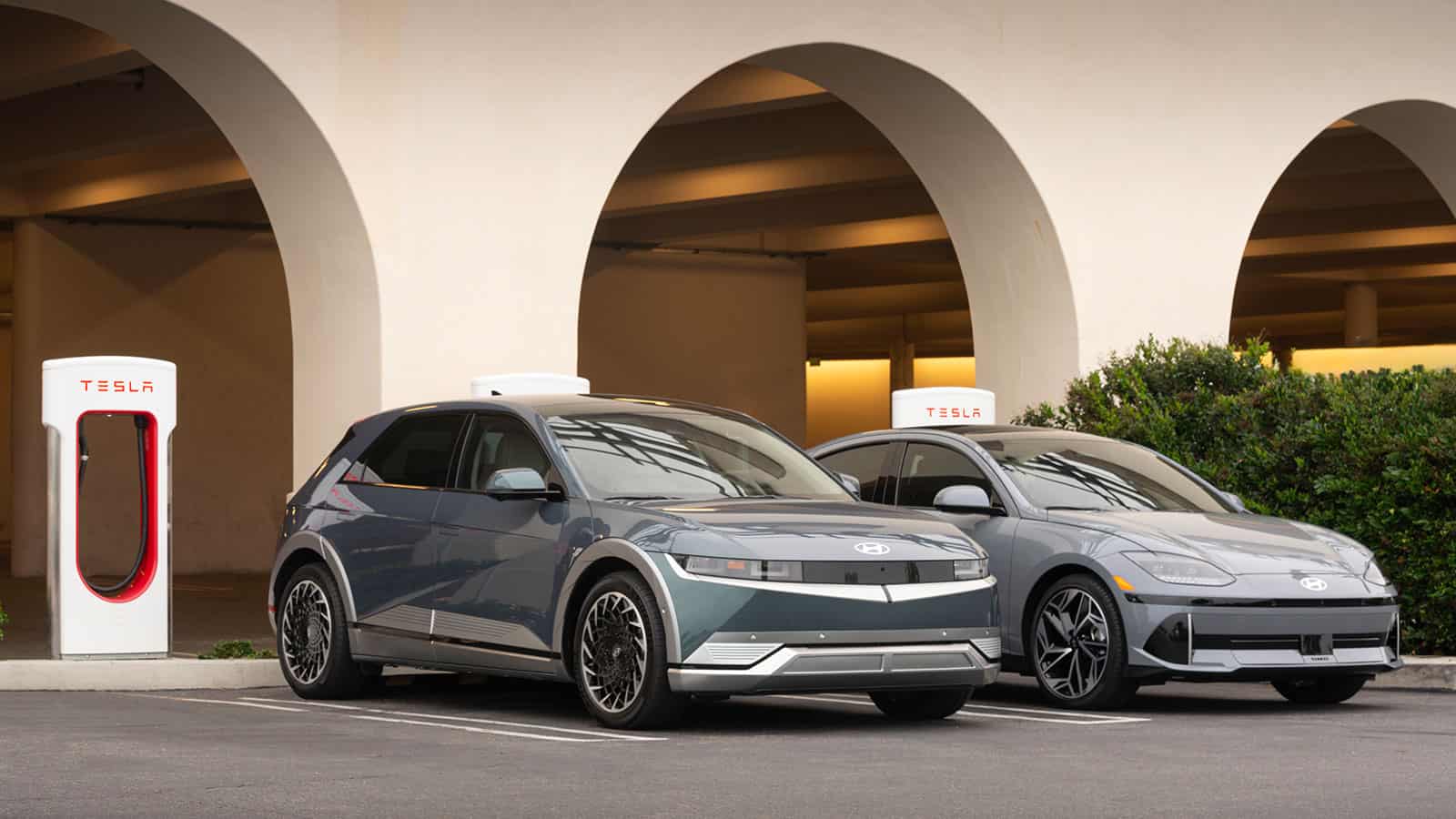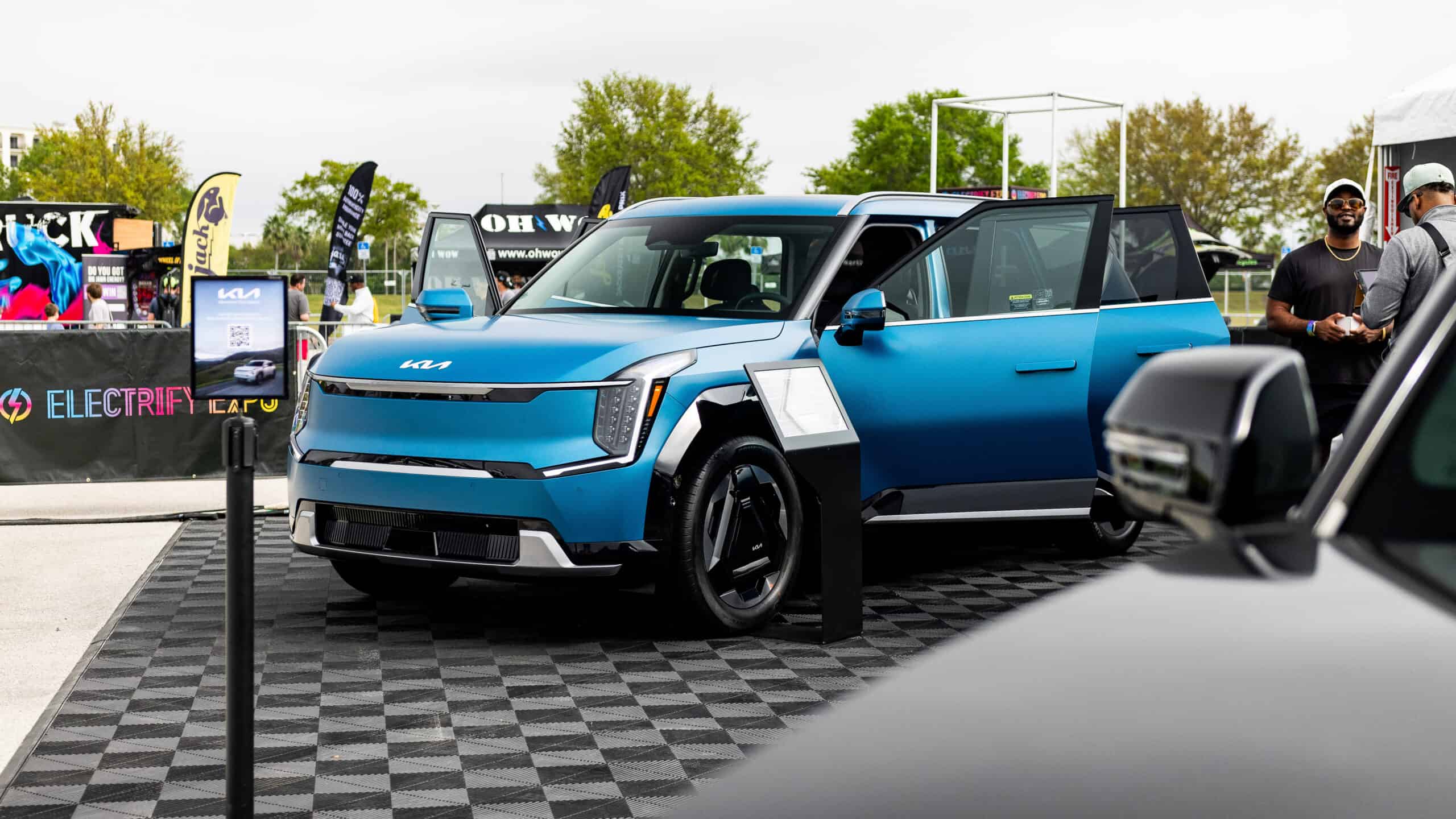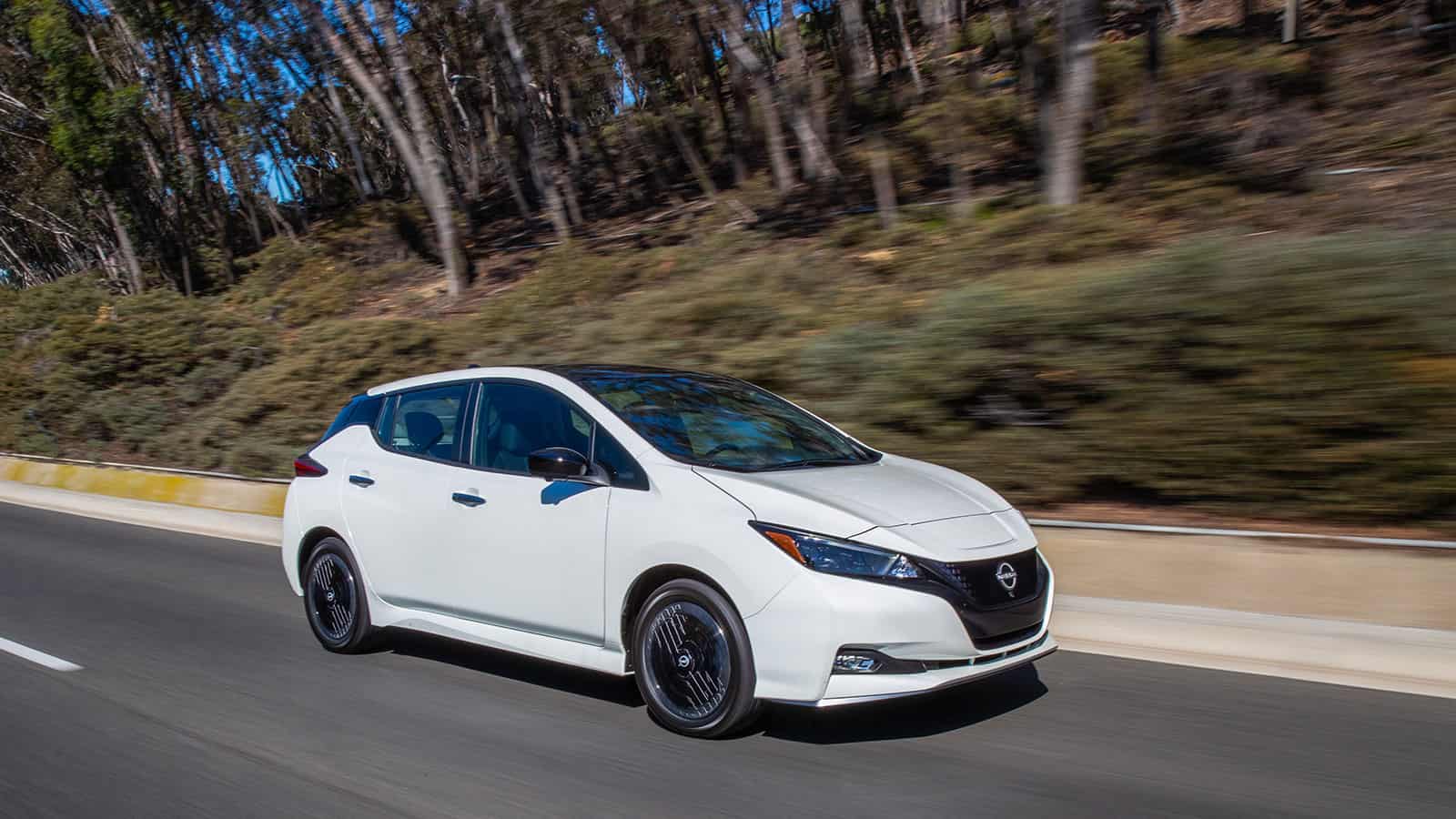- Electric car inventories are at all-time highs, so manufacturers are offering special deals on new EV leases.
- Many new EV leases include the $7,500 Inflation Reduction Act tax rebate — even if the EV is assembled outside of the United States.
- Always read the lease terms and look for ways to negotiate a lower monthly payment.
Electric car lease deals are better than ever before, but is leasing an EV the right choice for your driving needs and budget? If you’re considering an EV, evaluating lease deals, pros and cons, and terms attached to them could help you decide between leasing or buying an electric car.
ADVERTISEMENT
Understanding Leases
Leases are beneficial for people who drive fewer than 12,000 miles annually. Most leases involve two-year or three-year terms, and they always have mileage limits. Monthly lease payments are based on residual values or the value of the vehicle at the end of the lease. The residual is based on the vehicle’s mileage, age, and condition. So, leasing companies charge fees for excessive wear and tear and exceeding mileage limits. Most lease agreements have rules about customization, so it’s wise to leave the vehicle in stock condition.
When you lease a vehicle, you are technically entering into a long-term rental. At the close of the lease, you can purchase the vehicle for the residual value. You can also return it and buy or lease another one from the same manufacturer. You can also return the vehicle and walk away.
If you drive more than 12,000 miles annually, leasing won’t be for you. Over-mileage fees can range from $.10 to $.30 per mile. With a lease, you never build equity, as the car technically doesn’t belong to you.
Why Lease an Electric Car
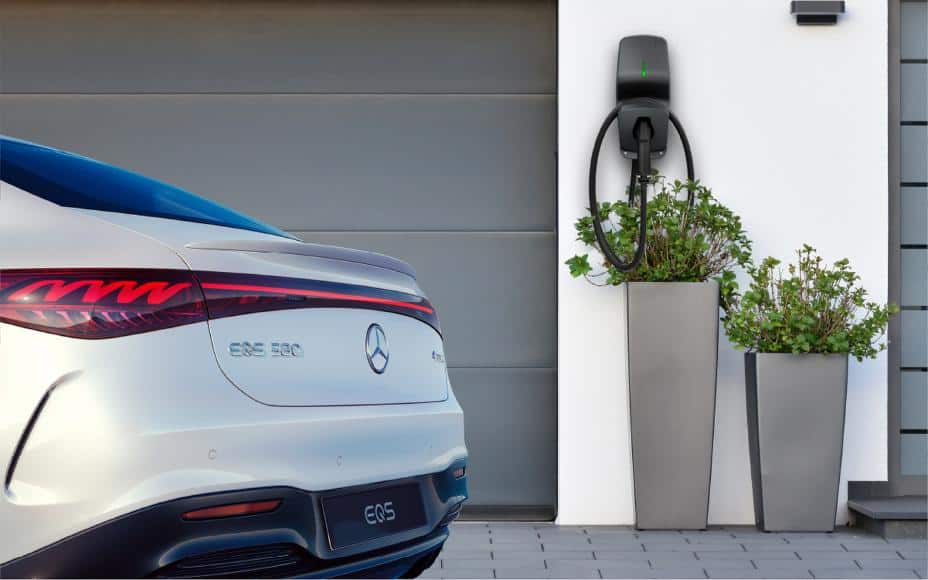
Recent price cuts have made EVs more affordable, but the newest EV lease deals offer additional benefits. Only a handful of 2024 EVs qualify for the Inflation Reduction Act tax credit, but the rules change for an electric car lease.
Thanks to an IRS loophole, leasing companies officially tax the full $7,500 tax credit for the electric vehicle, then pass the savings on to you in your lease agreement. The limitations regarding battery sourcing and assembly do not matter if the vehicle is leased. The automaker and its financial department decide how to dole out EV-lease savings.
ADVERTISEMENT
Along with the immediate $7,500 discount at the time of signing, lessees get the benefit of the residual value. In recent months, new and used EV prices have dropped, but a residual value is guaranteed. For example, the 2024 Kia EV9 has 36-month residual values between 58% to 60%, but a used 2023 Kia EV6 GT can be purchased for under $40,000, after the new MSRP of $61,000. The used value is 35% less than the new price. After three years, the value of the used EV purchased with cash or a traditional auto loan is certain to fall even further.
Concerns About Battery Life and Outdated Technology
As EVs are still a new technology, questions remain about the lifespan of the lithium-ion battery packs. If you lease an EV, you don’t have to worry about the life of the battery, as you’ll only have it for two years at 24,000 miles or three years at 36,000 miles. The federal government mandates that electric vehicle batteries are covered for at least 100,000 miles or eight years.
The same goes for driver-assistance features, infotainment systems, and charging technology. EV manufacturers are continuously engineering battery tech that charges faster with longer ranges. Consider how battery ranges have increased in the past few years. The newest EVs have battery ranges that average 247 miles, while EVs from 2018 have average ranges of 125 miles.
In three years, battery technology could be cleaner, lighter, and more efficient. Solid-state batteries are expected to be in EVs as soon as 2026.
Your leased vehicle won’t lose value, even if the battery technology does.
ADVERTISEMENT
Protect Against Price Drops
In the fall of 2023, Tesla dropped its prices a handful of times. The price drops affected the rest of the EV market, causing used EV values to drop. Drivers who purchased their Teslas before the price drop were disappointed in their vehicle’s sudden depreciation, while those who leased didn’t have to worry.
According to Carfax, Tesla financing as of March 2024 includes 6.49% interest rates, but drivers can lease a new Tesla Model 3 RWD for only $329 per month for 36 months at $2,999 due at signing. The three-year lease is less of a financial burden than a monthly car payment with accruing interest and an unknown end value.
Negotiation Is a Reality
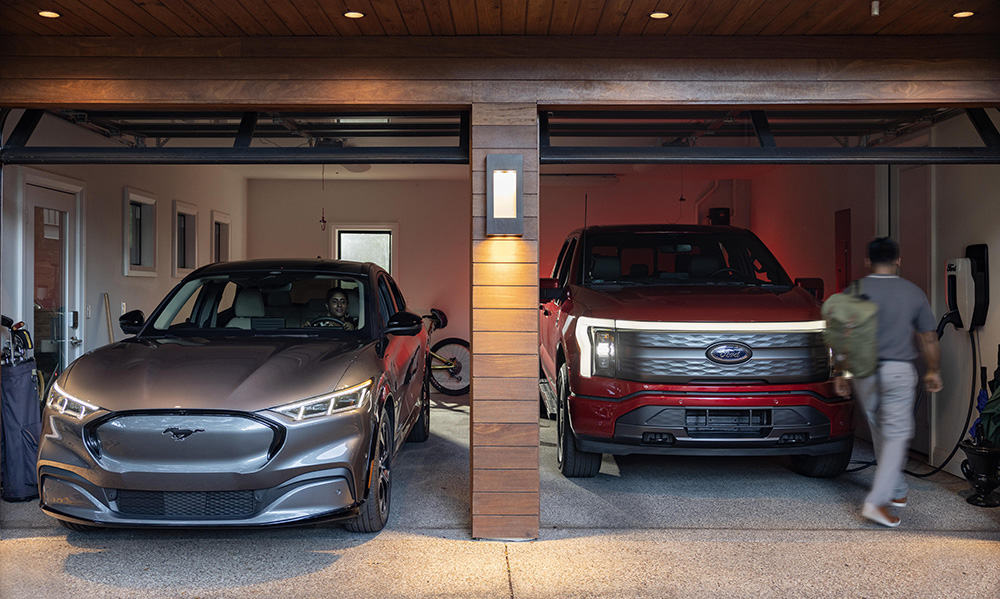
Supply chain issues and limited inventories have made it almost impossible for car buyers to negotiate. In 2024, all bets are off. Nearly all OEMs have plenty of stock — on average, 76 days of stock (according to Cox Automotive) — so, they are ready to negotiate.
Some manufacturers have already taken big dollars off their sticker prices. Ford is offering deep discounts on remaining 2023 Mustang Mach-E models and up to $15,000 off 2023 F-150 Lightning models, so dealerships might be reluctant to discount them more. But, it doesn’t hurt to try to get more money off your electric vehicle lease.
Before you sign any lease on an electric car, be sure to read the fine print. If you’re looking at a lease with 10,000 annual miles, you could try to negotiate up to 12,000 annual miles. You can begin your negotiation with the security deposit, then work through other small fees to lower your money down or monthly payment.
ADVERTISEMENT
Should You Buy Your EV at the End of the Lease?
Deciding what to do at the end of the lease comes down to residuals and market value. If the market value is higher than the residual, then buying the EV is worthwhile — especially if you can turn around and sell it for a profit. Otherwise, if the residual is significantly higher than the market value, the best choice is buying or leasing a different vehicle.
Many manufacturers offer loyalty specials for returning customers. Whether you lease or buy an electric car should come down to what you can afford. The best deal is paying cash because you don’t accrue any interest or unexpected fees. When you pay cash or pay with a traditional auto loan, you never have to worry about mileage limits or wear-and-tear fees, and you can customize your vehicle to your heart’s desire. Purchased vehicles have value, but leased vehicles do not build equity for drivers.
Leasing and Charging Networks
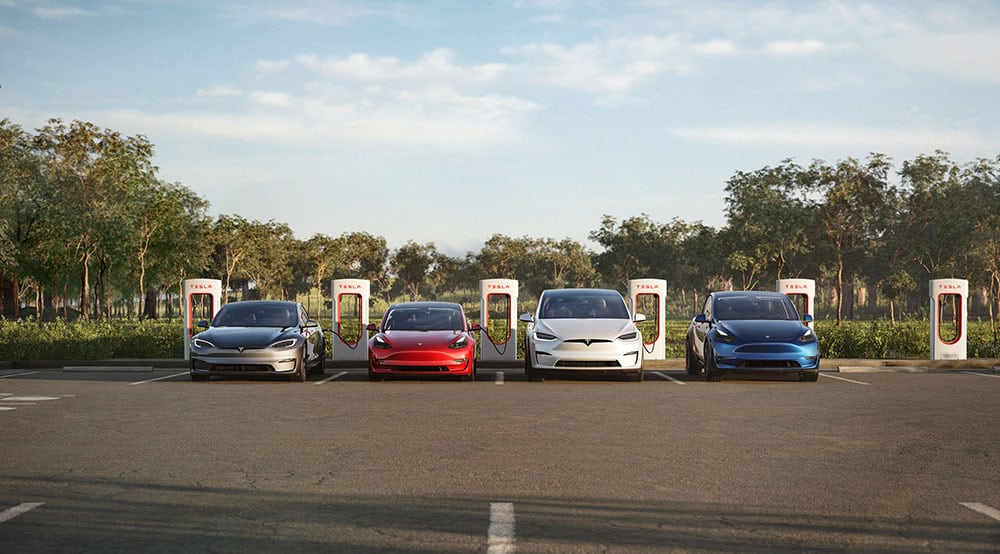
I purchased my EV in July 2023, well before non-Tesla automakers decided to switch their 2025 models to the Tesla NACS charging network. While I’ll still be able to charge my 2023 EV6 with a Tesla charger or a new J3400 charger when the big shift occurs, I’ll have to buy an adaptor and use charging apps. People who buy or lease a 2025 EV with the new J3400 charging system will have more efficient public charging experiences.
If you want an EV now but also want to take advantage of the new charging programs, opting to lease an electric car is the way to go. By the time the lease is up in 24 or 36 months, your next EV will have the updated technology — and any implementation issues in the early days of the new system should be solved.
ADVERTISEMENT

FEATURE IMAGE: HYUNDAI
FTC: We use income-earning auto affiliate links. Learn more.










